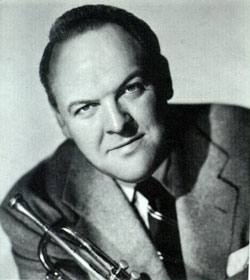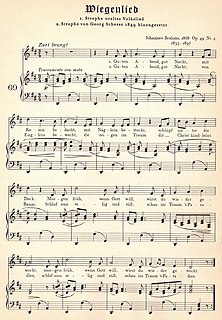This article needs additional citations for verification .(May 2021) |


"Peachtree Street" is a 1950 song co-written and recorded by Frank Sinatra in a duet with Rosemary Clooney. The song was released as a Columbia Records single.
This article needs additional citations for verification .(May 2021) |


"Peachtree Street" is a 1950 song co-written and recorded by Frank Sinatra in a duet with Rosemary Clooney. The song was released as a Columbia Records single.
Frank Sinatra co-wrote the song with Leni Mason and Jimmy Saunders. [1] Mason composed the music while Sinatra and Saunders wrote the lyrics. The song was arranged by George Siravo
The song was released as an A side Columbia 10" 78 single, Catalog Number 38853, Matrix Number CO-43100-1 and as a 7" 33, 1-669. The B side was the re-issued "This Is the Night." Neither of the songs charted. [2]
The subject of the song is a stroll down the street in Atlanta, Georgia of the same name. Sinatra originally intended Dinah Shore to sing the duet with him. [3] When Shore declined, Clooney was asked. The song was recorded on April 8, 1950.
The song features spoken asides by Sinatra and Clooney. Rosemary Clooney asks: "Say, Frank, you wanna take a walk?" Frank Sinatra replies: "Sure, sweetie, just pick a street." He noted how there were no peach trees on the street. She replied that they had to look back at the history of the street: "We'll have to go back a few years." In one of the asides, he noted that Clooney's real birthplace was Maysville, Kentucky. The song makes reference to an eventual marriage in the city of Atlanta. At the end, Sinatra asks whether she wants to carry him or call a cab. She whistles for a taxi.
The song appeared on the 1993 Frank Sinatra Sony compilation album The Columbia Years 1943–1952: The Complete Recordings, Volume 11, the 1999 Concord Records release Rosemary Clooney: Songs from the Girl Singer: A Musical Autobiography, and the 2002 album Rosemary Clooney: Complete 1950-1952 Columbia Master Takes on the Jazz Factory label.
The song was recorded on April 8, 1950 in New York. The personnel on the session were: Frank Sinatra (ldr), George Siravo (con), Emmett Callen, Leonard Hartman, Al Klink, Babe Russin, Herman Schertzer (sax), Chris Griffin, Pinky Savitt, Richard Trent, Ruby Weinstein (t), George Arus, Robert Cutshall (tb), Allan Reuss (g), Philip Stephens (b), Ken Lane (p), Maurice Purtill (d), Rosemary Clooney, Frank Sinatra (v). [4]

Rosemary Clooney was an American singer and actress. She came to prominence in the early 1950s with the song "Come On-a My House", which was followed by other pop numbers such as "Botch-a-Me", "Mambo Italiano", "Tenderly", "Half as Much", "Hey There", "This Ole House", and Sway(1960). She also had success as a jazz vocalist. Clooney's career languished in the 1960s, partly due to problems related to depression and drug addiction, but revived in 1977, when her White Christmas co-star Bing Crosby asked her to appear with him at a show marking his 50th anniversary in show business. She continued recording until her death in 2002.

Edward William May Jr. was an American composer, arranger and trumpeter. He composed film and television music for The Green Hornet (1966), The Mod Squad (1968), Batman, and Naked City (1960). He collaborated on films such as Pennies from Heaven (1981), and orchestrated Cocoon, and Cocoon: The Return, among others.
"In the Cool, Cool, Cool of the Evening" is a popular song with music by Hoagy Carmichael and lyrics by Johnny Mercer. It was originally planned to feature it in a Paramount film written for Betty Hutton that never took off, which was to be called The Mack Sennett Girl. The song was buried in Paramount's files until it was rediscovered and then used in the 1951 film Here Comes the Groom and won the Academy Award for Best Original Song.

"One for My Baby " is a hit song written by Harold Arlen and Johnny Mercer for the movie musical The Sky's the Limit (1943) and first performed in the film by Fred Astaire.

Sing and Dance with Frank Sinatra is the sixth studio album by Frank Sinatra. The tracks were arranged and conducted by George Siravo and his orchestra. Original Columbia 10-inch 33 1/3-rpm LP and 78-rpm album set released October 16, 1950; the 7-inch 45-rpm EP and EP box sets were released in October 1952.
"A Hundred Years from Today" is a popular song published in 1933 with music by Victor Young and lyrics by Ned Washington and Joe Young. The song was included in the London production of Lew Leslie's Blackbirds of 1934.
The Edsel Show is an hour-long television special broadcast live on CBS in the United States on October 13, 1957, intended to promote Ford Motor Company's new Edsel cars. It was a milestone in the long career of entertainer Bing Crosby and is notable as the first CBS entertainment program to be recorded on videotape for rebroadcast in the western part of the country following a live performance for the east coast. Crosby arranged for this ‘live’ program to be ‘produced’ by his alma mater Gonzaga University in order that the profits could go to them in a tax efficient way. The program won the ‘Look’ magazine TV Award for ‘Best Musical Show’ and was nominated for an Emmy as the “Best Single Program of the Year”.

The Best of the Columbia Years: 1943–1952 is a four-disc box set by the American singer Frank Sinatra, released on Legacy Records in 1995, catalogue C4K-64681. Initial release was in a book-style edition; a later edition was reissued in 1998 with a standard jewel case package and given a different catalogue number, C4K-65620. All but twelve tracks were originally released on 78 rpm records, and as an overview of Sinatra's recordings on Columbia this set replaces the previous catalogue item The Voice: The Columbia Years (1943-1952), released in 1986 on vinyl and later also on compact disc. The box set contains highlights of his career with Columbia Records; the complete recordings from these years were released in 1993 on The Columbia Years 1943-1952: The Complete Recordings.

"Summer Wind" is a 1965 song, originally released in Germany as "Der Sommerwind" and written by Heinz Meier and German language lyrics by Hans Bradtke. Johnny Mercer re-wrote the song into English along the same themes as the original, which talked of the changing of the seasons using the Southern European sirocco wind as a metaphor. In America, it was first recorded by Wayne Newton and subsequently by Bobby Vinton and Perry Como.

That Travelin' Two-Beat is a duet album by Bing Crosby and Rosemary Clooney recorded in 1964 and released on Capitol Records in 1965.
"Guess I'll Hang My Tears Out to Dry" is a 1944 torch song and jazz standard, with music by Jule Styne and lyrics by Sammy Cahn. It was introduced on stage by film star Jane Withers in the show Glad To See You, which closed in Boston and never opened on Broadway. The duo Styne and Cahn had previously written songs for several of Withers' films.

For the Duration is a 1991 album by Rosemary Clooney, of songs popular during World War II. Clooney is accompanied by her usual small jazz group featuring Warren Vaché Jr., Scott Hamilton, and John Oddo, plus a string section.
"Younger Than Springtime" is a show tune from the 1949 Rodgers and Hammerstein musical South Pacific. It has been widely recorded as a jazz standard.

Swing Around Rosie is a 1959 studio album by Rosemary Clooney, accompanied by the Buddy Cole trio.
George Siravo was a composer, arranger, conductor, saxophonist, and clarinetist.

"Sheila" is a 1953 song recorded and co-written by Frank Sinatra. The song was released as a single on Columbia Records.
"Invitation" is a song by Bronisław Kaper with lyrics by Paul Francis Webster, originally used in the film A Life of Her Own (1950). Though it was nominated for a Golden Globe award for Best Score in the original film, it only became a jazz standard after being used as the theme in the 1952 film Invitation. Tony Thomas notes that it was selected for the film for its degree of poignance. It is considered to be Kaper's second best known song after "On Green Dolphin Street". Jazzstandards.com describes it as a "lush and haunting score", and notes that it is most associated with John Coltrane, who recorded it in 1958. Howard Morgen, who arranged it for guitar, writes that the "haunting" tune has "long been recognized by jazz players for its potential as an interesting mood piece" and "still sounds fresh and contemporary today".
After Bing Crosby's long-term Decca Records contract was up, he signed many short-term contracts with a wide variety of labels. These included many popular labels such as Reprise, RCA, Verve, Decca (again), United Artists, Capitol and more.

John Oddo was an American jazz pianist, composer, and arranger. He is most notably associated as pianist and musical director for Woody Herman, Rosemary Clooney and Michael Feinstein.

"Wiegenlied", Op. 49, No. 4, is a lied for voice and piano by Johannes Brahms which was first published in 1868. It is one of the composer's most popular pieces.